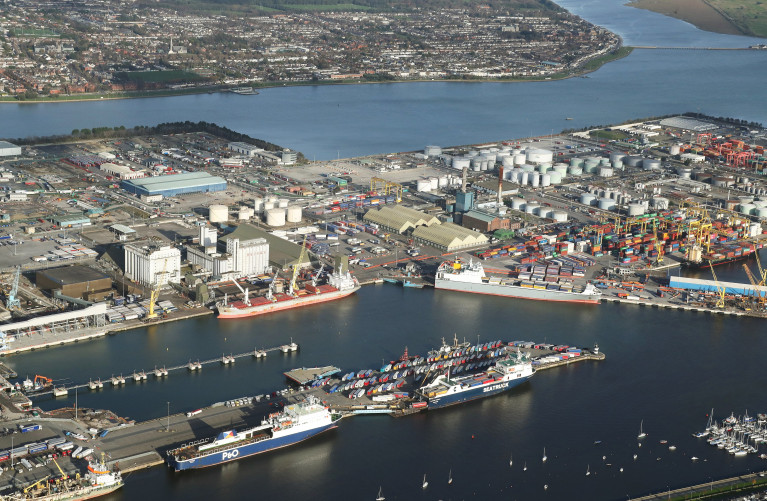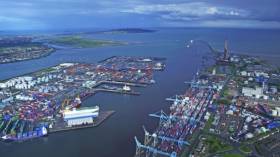Displaying items by tag: IrishUK trade
Ireland will never return to the type of trading relationship it enjoyed with Britain prior to Brexit, a leading customs official said on Monday as he warned of potential disruption for exporters.
Speaking at a briefing held at Dublin Port, Tom Talbot, head of Revenue’s customs operations (story), said ports were dealing well with post-Brexit border checks on goods coming from Britain into the Republic.
Just over two months since the introduction of border controls on imports following Britain’s exit from the European Union, Mr Talbot said traffic was still significantly lower than for the same period a year ago, which he attributed to a number of factors including stockpiling ahead of Brexit and the impact of store closures due to the Covid lockdown.
Checks
He said that currently about 80 per cent of all freight from Britain is being “green-routed”, meaning they can immediately proceed on their journey. Of the other 20 per cent, most of this is “orange-routed”, meaning document checks are required, while about 4 per cent is “red-routed”, indicating a physical check is necessary.
Mr Talbot said Revenue was happy with the level being achieved so far and said there would never be a day when all UK traffic could be green-routed.
“In practical terms the requirements that now apply to trade with the UK mean that there never will be a scenario that 100 per cent of goods ... will be able to arrive through the port seamlessly as they did when Britain was part of the EU,” said Mr Talbot.
The Irish Times has more including new figures released where from January 1st to February 28th there were 50,800 freight vehicle movements into Ireland from more than 870 ferries from Britain with over 2.6m import declarations processed.
During the same period there were 46,500 movements from the Republic to Britain. And some 320,000 export declarations.
Afloat adds further figures released on 1st March can be consulted on Gov.ie's Operational Update (2 month post-Brexit transition). The update highlights in depth the overall trading /shipping scene with a listing of 10 key headings.
#IrishUKTrade - Enterprise Ireland are to seek its clients to be less reliant on the UK markets. The Irish Times writes the reduction will cut the proportion of their exports that go to Britain by about seven percentage points over the next five years, following the UK’s decision to leave the EU.
The agency responsible for helping Irish companies export to international markets, saw exports to the UK increase last year by 12 per cent to €7.5 billion.
The UK remains the Republic’s largest export market, though exports there as a proportion of Enterprise Ireland’s total client exports has declined from 45 per cent in 2005 to 37 per cent in 2015.
Enterprise Ireland UK and northern Europe director Marina Donohoe said on Monday “it would certainly be the intention” to reduce the figure further over the next number of years to mitigate the fallout from the referendum result.
For more on this story, click here.






























































